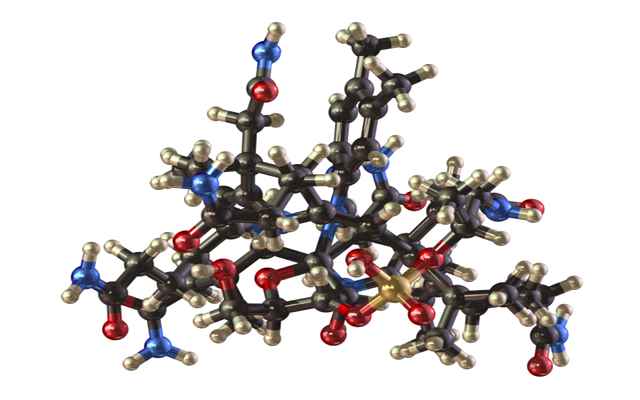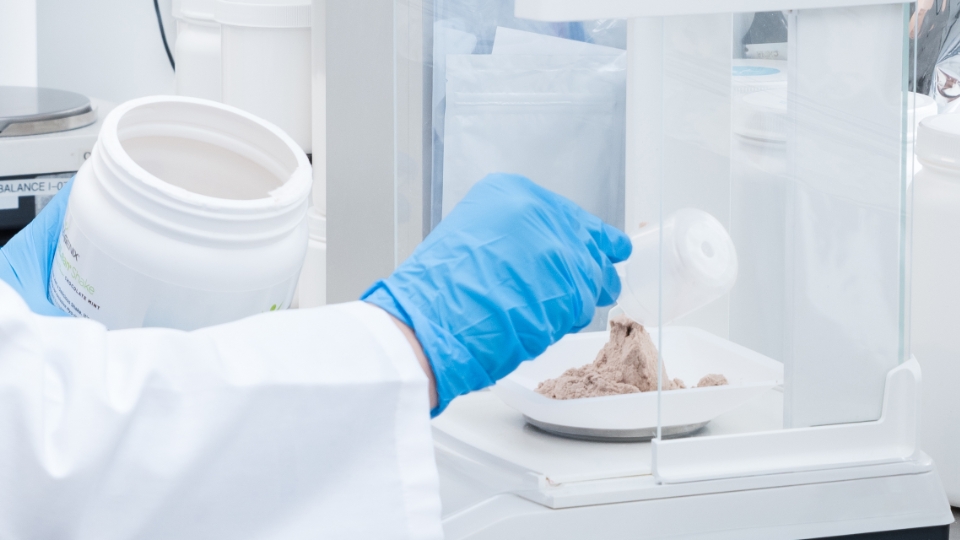Vitamin B12 is the big man on campus. That’s to say that when compared to other vitamins, B12’s chemical structure—containing a bulky metal ion of cobalt at its center—is huge and elaborate.
The vitamin, also known as cobalamin, can even bend, twist, and fold leading scientists to stare in awe at its fantastic abilities through 3-D imaging (1). Yet, despite its size, B12 is crucial for chemical reactions in both metabolizing food for energy and for detoxifying the potentially harmful homocysteine—a protein linked to increased cardiovascular disease risk.
Because of its size, however, B12 can be a beast to absorb. It requires the secretion of a protein called “intrinsic factor” that binds to it and enables passage through the small intestine and into the bloodstream. The decreased secretion of intrinsic factor due to age or gastrointestinal conditions can interfere with the ability to absorb B12 leading to deficiency and pernicious anemia, a condition in which the body can’t make enough healthy red blood cells. Since B12 is mostly found in animal products, vegetarianism could also play a role in low B12 levels.
Growing research points to B12 supplementation as key to maintaining the health of our brains and nervous systems (2), our hearts, and even our telomeres (those markers of biological age). But how do you know what form to take and if what you’re getting is actually effective?
Based on research and testing, cyanocobalamin is the only form of B12 that has shown repeatedly to be stable enough to produce results consistently. The others degrade too quickly.
As noted earlier, B12 is large and its complexity makes it especially vulnerable to breakdown over time. Rarely, do other forms – for example, hydroxocobalamin and methylcobalamin – meet stability requirements for shelf life of two years. These degraded forms of B12 are no better than taking placebos, or sugar pills.
Speaking of placebos, cyanocobalamin is so effective, stable, and safe that it is often used as placebo in clinical trials. In fact, all B12 forms are entirely safe even in incredibly high dosages with no evidence of adverse effects.
In addition, while some people with special conditions may need injections of B12 for optimum support, the majority of people are able to get what they need through high oral doses of vitamin B12 as they age, which may help support the brain, memory, and thinking.
So, be smart about B12, and choose only cyanocobalamin for your future.
References
- Yan Kung, Nozomi Ando, Tzanko I. Doukov, Leah C. Blasiak, Güneş Bender, Javier Seravalli, Stephen W. Ragsdale, Catherine L. Drennan. Visualizing molecular juggling within a B12-dependent methyltransferase complex. Nature, 2012; DOI: 10.1038/nature10916
- Smith AD, Smith SM, de Jager CA et al. Homocysteine-lowering by B vitamins slows the rate of accelerated brain atrophy in mild cognitive impairment: a randomized controlled trial. PLoS One 2010;5:e12244. 10.1371/journal.pone.0012244





